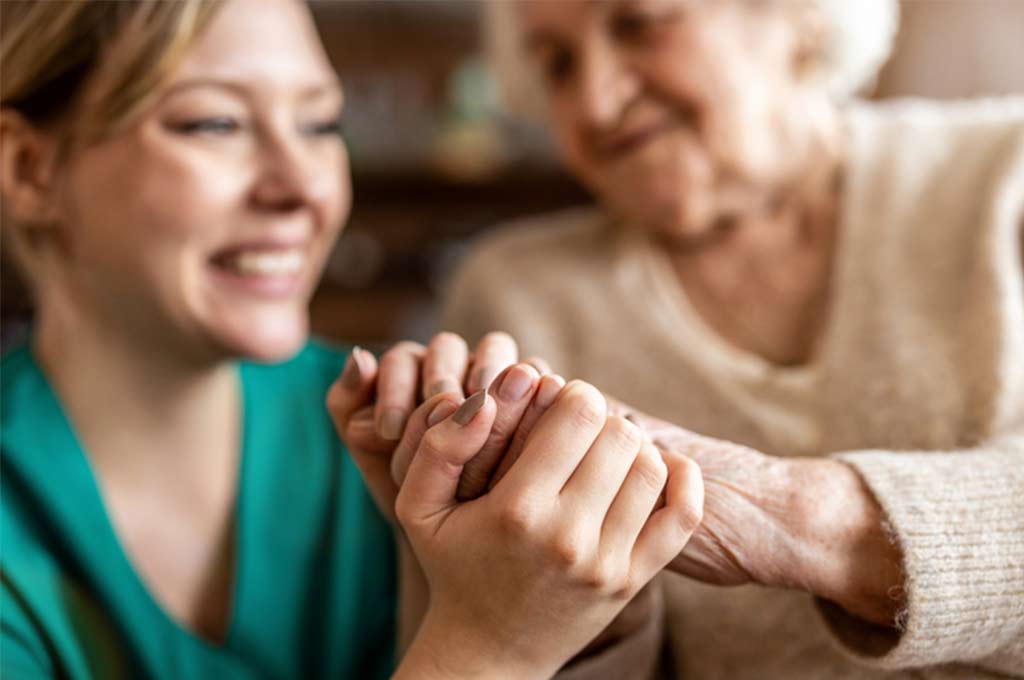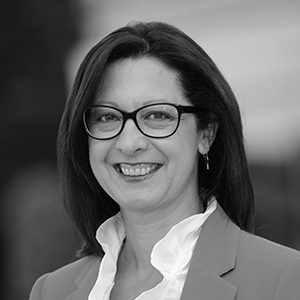
IESE Insight
What meaning at work means for caregivers
From impact to personal development, caregivers draw meaning from a job that is often underappreciated and underpaid.
Just about everyone wants to find meaning in their work, though the sources of meaning may be very different for a teacher than for a banker, for a marketing specialist than for a caregiver.
Research by IESE’s Marta Elvira, together with Kirstie McAllum of the Université de Montréal and Marta Villamor Martín, looked at caregivers for the elderly, identifying how they found meaning in their work as well as the influence of other people in reinforcing — or not — that sense of meaning.
This matters because the world’s population is aging. According to the World Health Organization, by 2030 the share of the global population aged 60 years and over will grow to 1.4 billion (or 1 in 6 people) from 1 billion in 2020. By 2050, the number will have doubled. While the graying of societies has long been a trend in places such as Europe and Japan, it is now low- and middle-income countries that are seeing the greatest change in their demographics.
Yet even though most people will require help with the activities of daily living at a certain point in their lives, care organizations struggle to recruit and retain workers. Salaries are relatively low. In many countries, caregivers tend to be immigrants; they also tend to be women and have low education levels.
There is no single solution to all these issues, but the concept of meaning is a useful place to start. Research shows that people who find meaning in their work are more productive and happier, and stay with companies longer; jobs viewed as meaningful by society are also more attractive.
To understand meaning in the context of care work, the researchers conducted interviews with care workers in Spain and the United States. Through this fieldwork, they identified four dimensions of meaning:
- Skill level. Care workers who found meaning in their work understood that their profession was highly skilled. They realized that they knew care recipients uniquely well, and that this special knowledge allowed them to detect changes in their condition and intervene accordingly.
- Impact. Making a difference in the lives of others was key to meaning. Care workers felt their efforts enhanced people’s dignity and quality of life by acknowledging their personhood and being present with them. They felt they helped ensure care recipients’ physical comfort and chance to regain some independence and ability to participate in different activities.
- Personal development. Care workers who experienced meaning in their job reported learning on different levels. They felt they learned from care recipients, who shared the stories of their lives. They learned medical and therapeutical skills. They also reported learning about themselves, deepening personal qualities such as patience and adaptability.
- Rich relationships. Care workers also frequently cited establishing deep, affection-filled relationships with care recipients as a source of meaningfulness. Some described the elderly they worked with as akin to friends or members of their extended families, and those attachments enriched their lives.
How employers, family and friends shape meaning
Finding meaning in work is not just intrinsic to the individual; it is also related to the people around you. A caregiver’s network involves not only employers and clients, but also family members and others involved in care. Adding to the complexity is that caregivers tend to be portrayed in exaggerated terms, either as earthly angels or as low-skilled cleaners forced to deal with the worst aspects of physical decline.
Through interviews with care workers’ friends and family members, supervisors and co-workers, the researchers found that their personal and professional spheres both reinforced and undermined their sense of meaningfulness. This dovetails with research that personal relationships influence meaning in the workplace more generally.
For example, some managers reinforced the sense of meaning through skillfulness: consulting care workers on symptoms and signs, referring questions about care to them, incorporating their observations/interventions in documentation shared within and outside the organization. They included caregivers in team decision-making, explicitly affirmed their contribution to excellent care and thanked them for managing challenging situations. This, in turn, brought caregivers’ skillfulness to the attention of care recipients’ families.
Other managers, however, ignored or minimized the role of caregivers, deferring instead to doctors or nurses and shutting down the sense of skillfulness — and hence meaning.
Caregivers’ own friends and family reflected this duality. Many care workers felt they could only talk about the positive parts of their jobs, because when they mentioned the negative, people would encourage them to look for better work, rather than support them through the lows.
For caregivers, meaningfulness is derived from the work itself — with its skills, impact, personal development and relationships — and from feeling valued by those around them.
You may also enjoy: The power of purpose to reconnect: what our divided society needs now

